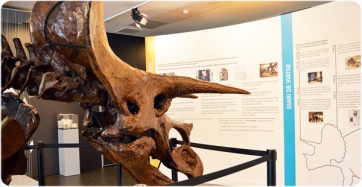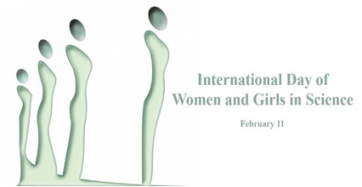ICP News
Earliest example of a rapid-fire tongue found in rare extinct amphibians preserved in amber
05 Nov 2020
1617 times
A new Science study shows that albanerpetontids, a group of rare extinct amphibians that lived more than 100 million years ago, were sit-and-wait hunters that snatched preys with a projectile firing of their tongue. A set of fossils from modern-day Myanmar preserved in amber represent the new species Yaksha perettii…
The rodents of the Miocene of the Vallés-Penedés, subject of Silvia Jovells doctoral thesis
27 Oct 2020
683 times
Silvia Jovells-Vaqué, researcher at the Paleoecology and Biochronology Research Group of the Institut Català de Paleontologia Miquel Crusafont (ICP), defended today her doctoral thesis on the Miocene rodents from the Vallès-Penedès basin. Her work, which has been directed by Isaac Casanovas-Vilar (ICP), has analyzed more than 1000 fossil remains of…
A new study led by Borja Holgado, research collaborator at the Institut Català de Paleontologia Miquel Crusafont (ICP), brings a new focus on the understanding of anhanguerids, a lineage of large toothed pterosaurs characterized by blade-like crests at the tip of their snouts. The research has been published in Acta…
A stolen fossil leads to the description of a new crocodile species in the Pyrenees
17 Sep 2020
1740 times
A study led by Albert G. Sellés, researcher at the Institut Català de Paleontologia Miquel Crusafont (ICP), describes the new species Ogresuchus furatus from fossil remains found in Coll de Nargó (Catalonia, Spain). It was a quite small crocodile that could have fed on dinosaur hatchlings. The fossil was stolen…
Thesis defenses in times of pandemic: Joan Femenias and his PhD work on the Eocene primate Agerinia
09 Sep 2020
625 times
Joan Femenias, researcher at the Paleoprimatology and Paleoanthropology Group of the Institut Català de Paleontologia Miquel Crusafont (ICP), defended his doctoral PhD thesis on this small 50-million-years-old primate of about. The analyzed fossil remains were obtained from the ICP collections as well as from prospecting and sampling campaigns in the…
A new study led by Albert Prieto-Marquez, ‘Ramón y Cajal’ researcher at the Institut Català de Paleontologia Miquel Crusafont (ICP) sheds light on how the iconic frill of the ceratopsians (a group that includes the well-known three-horned Triceratops) evolved through the 65 million years of existence of these animals. The…
The extinct African crocodile species Crocodylus checchiai may be closely related to American crocodile species alive today, according to a study published in Scientific Reports. The findings suggest that crocodiles may have migrated from Africa to America during the Late Miocene epoch (11–5 million years ago). The research has been…
Following the recommendations of the health authorities linked to the COVID-19 pandemic and with the aim of limiting contagions and to facilitate conciliation with the personal/family life of the staff due to the closure of educational centers, the ICP Museum is closed and all the public activities have been canceled…
A new study led by researchers from the Institut Català de Paleontologia Miquel Crusafont (ICP) reveals that the morphology of the inner ear’s bony labyrinth is a powerful tool to reconstruct phylogenetic relationships among apes and humans. By means of a recently developed technique of 3D geometric morphometric analysis, researchers…
On the occasion of International Women's and Girl's Day in Science, which is celebrated on February 11, the women working at the Institut Català de Paleontologia Miquel Crusafont (ICP) explain their jobs.
















